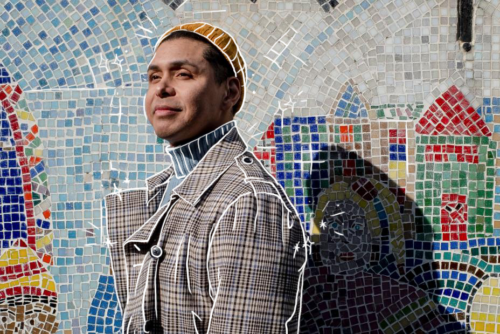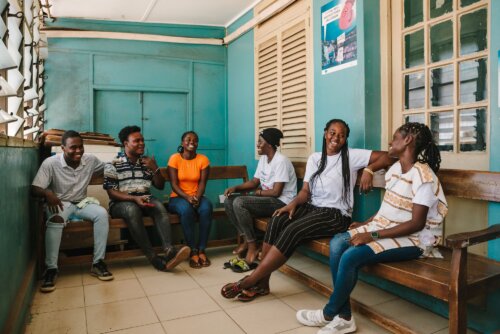How Much Do You Really Know About Vaccines?
Over the last 2 years, talking about vaccines has become as commonplace as talking about the weather. Seriously… think about the last time you went a full 24 hours without someone mentioning vaccines, vaccination status, boosters, etc.. But it’s for good reason—COVID-19 vaccines remain a critical tool in combating the pandemic; they help reduce the risk of severe illness and hospitalization, especially for people in high-risk groups, including people living with HIV/AIDS.
Yet, nearly 1.5 years after the vaccines were introduced, many people living in developing countries remain unvaccinated. Yes, unvaccinated people are more likely to get sick from COVID, but that’s just the tip of the iceberg. More people sick from COVID means more disruption to other health services, including access to lifesaving HIV treatment.
We’ve said it before and we’ll say it again: this pandemic isn’t going anywhere until people are vaccinated everywhere.
So we’ve established you’re probably spending a lot of time talking about vaccines, but how much do you really know about them? In honor of World Immunization Week, it’s time to test your knowledge!
1. Myth or fact?: The first-ever vaccine was made in 1796
FACT!
225 years ago, an English physician named Edward Jenner (nope, no relation to Kylie and Kendall—we checked) invented the smallpox vaccine, the first form of immunization ever formally recorded. So how’d he do it? Jenner observed that milkmaids who previously contracted cowpox didn’t contract smallpox. After further experimentation, Jenner discovered that exposure to the cowpox virus could actually protect against the virus causing smallpox. Many modern vaccines are based on the method that Jenner discovered, which prepares your immune system to fight a disease.
2. Myth or fact?: It’s estimated that vaccines prevent 2 to 3 million deaths every year around the world
FACT!
It’s impossible to know the exact number of lives saved by vaccines, but 2 to 3 million might actually be a low estimate! Vaccines now prevent more than 20 life-threatening diseases, helping people of all ages live longer and healthier lives. Over the past 60 years, vaccines have eradicated smallpox and are on the verge of eliminating polio.
3. Myth or fact?: At this point in the COVID pandemic, it’s much easier to get a covid vaccine, regardless of where you live
MYTH!
Depending on where you live, getting a COVID vaccine may still not be as simple as walking to your local pharmacy. As of April 2022, only 16 percent of the population in Africa was fully vaccinated, compared to 65 percent of people in the U.S.. Right now, the problem is no longer supply of vaccines, but vaccine distribution. Countries obtaining vaccines is a critical first step, but it’s only a first step. There’s a ton of complicated planning and logistics required to actually get shots into people’s arms and the global community must step-up to support these efforts.
4. Myth or fact?: An HIV vaccine exsists
MYTH!
While no vaccines currently exist to protect against HIV, The National Institute of Allergy and Infectious Diseases (NIAID), recently launched Phase 1 of a clinical trial for an HIV vaccine evaluating three vaccines using the same mRNA technology used in several approved COVID-19 vaccines. Though there’s no HIV vaccine (yet), antiretroviral medication (ARVs) can allow those living with HIV to lead full and healthy lives. These life-saving drugs also prevent those living with HIV from transmitting the virus to others.
5. Myth or fact?: Vaccines are the only thing we need to end the COVID-19 Pandemic
MYTH!
Vaccines are a critical part of fighting COVID-19, but they are only one tool in the toolbox. To beat this pandemic, and future pandemics, we need to invest in training health care workers, improving health facilities, and ensuring everybody has access to testing and treatment in addition to vaccines.
The Global Fund, where all of (RED)’s money goes, is one of the largest funders of global health, investing in life-saving, country-led programming and strengthening health systems. Global Fund investments over the past 20 years prepared communities to respond to COVID and helped prevent a worst-case scenario. Continued investments in the Global Fund will help countries manage COVID, fight other deadly pandemics, and prepare for the next global health emergency.


